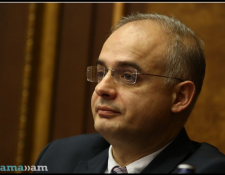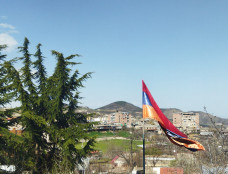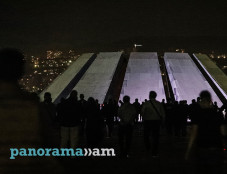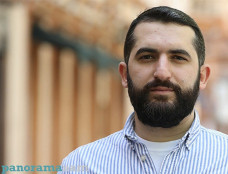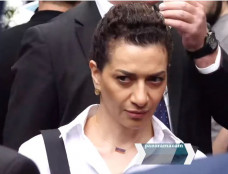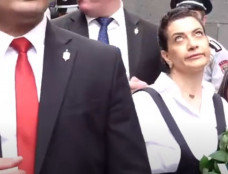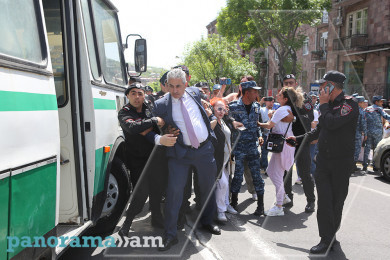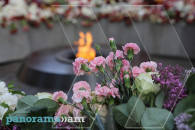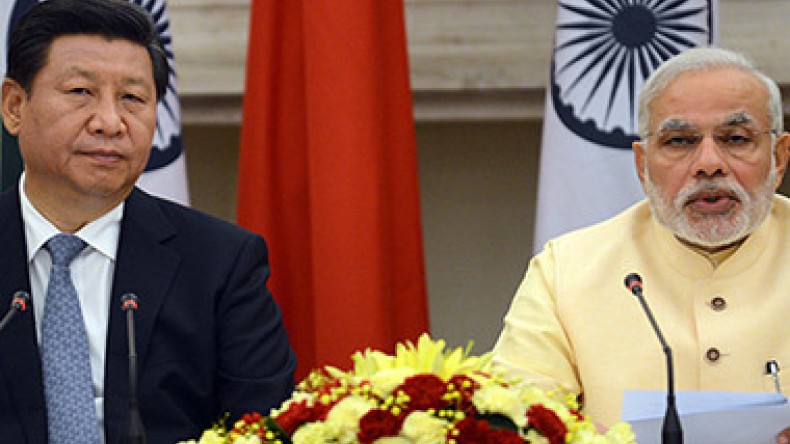
Modi warms up to Xi keeping ‘border’ as the key word
By Jhinuk Chowdhury
From RT
While economics and pragmatic foreign policy are the triggers, results of the meeting between Chinese President Xi Jinping and Prime Minster Narendra Modi in India, are decided elsewhere - at the disputed Sino-Indian border.
Just around the time of President Xi’s visit to India, the India -China border hit headlines with reports of battalions of the Indian Army being rushed to the Line of Actual Control (LAC) - that separates both countries - following an incursion by Chinese troops into Indian territory.
What followed later is a series of talks around business, security cooperation and new Chinese projects, most of which PM Modi seemed to have made conditional on the border situation.
Though trade continues, bilateral relations between the two countries haven’t been too affable since the Sino-Indian border war in 1962, mostly prompted by frequent border violations. However, lately China has been showing a lot of interest in deepening ties with India.
What prompted this new change is the transformed geo-political situation in which China is actually repositioning the importance of India in the region.
An all-powerful China and the US with its Asia rebalance policy has fragmented the region into two blocs – one around the dragon kingdom and the other around the US and its allies comprising Japan, South Korea and the Philippines. As each of the leagues strives to brace up its network in the region, an economically emerging India with a politically strong democratic system is seen by many as a game changer, evident in the recent gestures from powers like Japan, locked in a tiff in the East China Sea, courting India with an investment of up to $35 billion. PM Modi is also lined up for a trip to the US this month.
Development partners?
China, which seems to be watching it all very closely, is re-strategizing its response to US’s rebalancing by slowly pivoting away from fiercely competitive East Asia where the Sino-American relations have gone a little too combative. China feels the US’s discomfort about China’s rise is at the heart of its rebalancing policy. At a more intensive level China fears the US may even resort to further strengthening defense ties in East Asia which could result in military confrontation. This will certainly impact the Asian major’s vision of an integrated East Asian economic zone apart from firming US’s Trans Pacific Partnership cause.
The safer zone though is at the west of its border comprising South Asia, Central Asia and the Middle East, where the U.S. is receding.
With the impending withdrawal of NATO forces from Afghanistan, China feels Washington is leaving behind a vast void for it to fill. And all along its ‘westward march’ in South Asia there is one key player China knows it will always need - India.
India is also a vital component of President Xi’s pet project the Maritime Silk Road (MSR) that connects the Indian and Pacific Oceans – especially as it pitches forward the Bangladesh-China-India-Myanmar (BCIM) Economic Corridor.
President Xi had set the tone of his three day visit in an op-ed on the Indian daily The Hindu emphasizing the need for India and China to become closer development partners who draw upon each other’s strengths and work together for common development. It said, “The combination of the world’s factory and the world’s back office will produce the most competitive production base.”
He further indicated sustainable growth of the Asian economy will be led by India’s participation in the BCIM Economic Corridor, the initiatives of the Silk Road Economic Belt and the 21st Century Maritime Silk Road.
Tough Talks
However PM Modi, while showing his eagerness for all the offers China has made, has also exhibited a certain kind of assertiveness. Mentioning that China is significant for India’s foreign policy, he also subtly made it clear that no business goal can be fully materialized unless border issues are addressed.
Border protection was an important promise Modi made during his election campaign when he openly criticized China for its ‘territorial mindset’ making a reference to a reported Chinese incursion into Indian Territory in 2013 just before the visit of Chinese Premier Li Keqiang.
Once in power, he immediately took up the task of bracing up the infrastructure in the border regions like Arunachal Pradesh, which China calls South Tibet.
In his press statement he said, “Peace and tranquility in the border region constitutes an essential foundation for mutual trust and confidence and for realizing the full potential of our relationship. This is an important understanding, which should be strictly observed,” emphasizing a speedy resumption of the stalled process of clarifying the LAC.
Even the status of Xi’s BCIM project India hinted depends on the border situation. As Modi stated, “We discussed regional connectivity and the proposal for the Bangladesh, China, India and Myanmar Economic Corridor. Located at the crossroads of Asia, India believes that reconnecting Asia is important for its collective prosperity.” But he reiterated, “I also believe that our efforts to rebuild physical connectivity in the region would also require a peaceful, stable and cooperative environment.” Citing security reasons in the Indian Ocean region, New Delhi stayed away from signing up for MSR revival.
As Harsh V. Pant, Professor of International Relations, King's College London explains, “The bottom line is as long as the border issue is not given a serious consideration in Sino-Indian ties, this relationship will be devoid of any real substance. The past approach of keeping border issue on the side and concentrating on positive aspects like the economy has clearly not worked.”
Quite explicably, as a stark departure from the past when the border would find just a passing reference, this time around both India and China released a statement terming resolution of border issue as a “strategic goal.”
"Recalling the Agreement on the Political Parameters and Guiding Principles for the Settlement of the Boundary Question signed in April 2005, both sides reiterated their commitment to an early settlement of the boundary question and expressed their conviction that this will advance basic interests of the two countries and shall, therefore, be pursued as a strategic objective,'' said a joint statement.
Stating “non-demarcation” as the main reason for the border violations between the two countries, President Xi called for a resolution of the boundary issue "at an early date.”
This assertive Indian approach is relatively new compared to the past when New Delhi was always playing safe with China fearing a border backlash.
However, while Modi has to take a tough stance on the border, when it comes to delivering on the promises he made about India’s economic growth the new prime minister needs strong partners who can execute his development vision. As infrastructure and manufacturing are zeroed in as the key sectors driving growth, China – which is already a huge investor in Modi’s home state Gujarat - becomes the obvious choice of a source for equipment and technology.
Though lower than Japan’s $35 billion which many expected China to outdo, the promise of $20 billion is nevertheless quite a jump from a mere $400 million that China has invested in India so far.
China is India’s largest trading partner with total bilateral trade at $66.4 billion in 2013. However a huge trade gap exists between the two currently at $35 billion favoring China which the latter committed to address. The first step might be easing up Chinese market for India's pharmaceuticals, farming and fuel products. China will also help India build high-speed rail projects. Apart from signing a MoU on space cooperation, President Xi Jinping also mentioned the creation of the "Asia-Pacific security and cooperation architecture that is open, transparent, equal-footed and inclusive."
But President Xi held back his agreement at one of the most contentious issues for India –Beijing’s policy of issuing “stapled visas” to passports from the disputed border region of Arunachal Pradesh, which it calls "South Tibet", stating they do not need permission to travel to China!
So where is the “walk of the talk,” many ask. While in New Delhi, President Xi is said to have ordered his troops to withdraw from India after PM Modi raised the issue of the Chinese incursion. However, the troops continued the intrusion even after the President left. The impact is seen in the ongoing confidence building measures with reports of calling off a soon to be held India-China media dialogue with many suspecting the current standoff at the border being the reason behind it.
Though it’s a relation of interdependence, quite obviously the instability at the Sino-Indian border is casting a shadow of suspicion over the broader and more progressive issues.
Newsfeed
Videos





